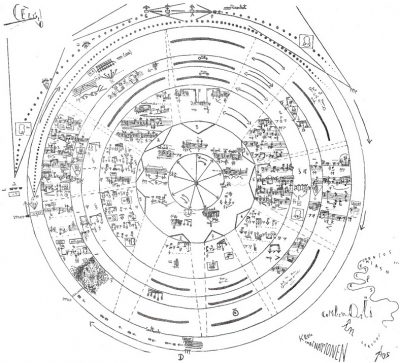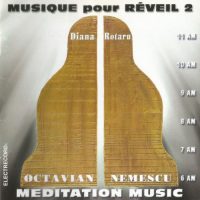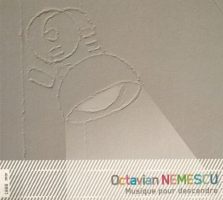N & D & N
|
Dan Albertson [September 2016.] [For you, W. P., whom I affectionately call “Mr. Wang,” and without whom I could never have made dreamland into concrete reality.]
A miscellany this time. I am nothing if not lazy.
N: Emmanuel Nunes (1941-2012) would have turned 75 on 31 August. For sure, his music is long-winded and often an extreme test of endurance, but very few other composers of the late century past had his ear for sonority. My next article for La Folia will be a look at some of the scant, and obscure, discographic proof of his brilliance. Only a plug here in the meantime for Musik der Frühe (1980-86), a 40-min. foray for 18 players: winds, brass and strings only (Erato ECD 75551; Péter Eötvös / Ensemble Intercontemporain). It haunted me years ago, and haunts me again now. Oh, those four trombones! D: Pascal Dusapin (b. 1955) had a rare outing in the orchestral season of an American orchestra in Chicago in May. The work in question was Outscape (2014-15), a concerto for cello and orchestra of 12 winds, 8 brass, timpani, 2 percussion, and strings. The soloist was Alisa Weilerstein and the conductor was Cristian Măcelaru. The piece is stronger than the première performances it received. The soloist has an extremely weak tone, one covered up easily in spite of the rather patchy orchestration. She is simply the latest example of a dynasty star. Without a famous father, her proper place would be in the back desk of some community orchestra. How anyone could follow the gesticulations of Măcelaru is beyond me; he has no technique, but he has bouncy hair, and these days style bests substance. The piece itself is the best one that Wolfgang Rihm never wrote, c. 1993. Indeed, it makes prominent use of bass clarinet, bass drum and woodblocks. The palette is muted, the melancholy high. Progress is rather stilted, if not glacial, and no big payoff is ever attained. Sure, the cello gets some speedier writing, with witty apologies from the composer in the score, and a few orchestral outbursts remind one that Dusapin has essentially become a cinematic composer, but no real destination otherwise. A bit perverse, this piece, with its minimal use of the orchestral apparatus, but who says that perversion is a curse? N:
Octavian NEMESCU: OU for 11 o’clock AM (2004); AM UAT (2008); OUA for 10 o’clock AM (2002-03); rouaUruauor for 9 o’clock AM (2002); BeiTrissonum for 8 o’clock AM (2001); Naturel – Culturel (1973, rev. 1983); BeitIntervallum for 7 o’clock AM (2000); BeitSonorum for 6 o’clock AM (1999). Various performers. Electrecord EDC 1036–39. (http://electrecord.ro/) Octavian NEMESCU: EUI or ErUImII for 2 o’clock PM (2007); OUIEIUO for 3 o’clock PM (2008-09). Various performers. Niklas/Bółt n/004. (http://boltrecords.pl/) Octavian Nemescu (b. 1940), a longtime professor at Bucharest’s National University of Music, writes music at once conceptual and visceral, one defying words. I suspect that his 1980s book The Semantic Capacities of Music, were it available in English, would make his aesthetic preoccupations clearer. What is obvious is that his art aims at philosophical ends far beyond the realm of music. Since when is music ever about music, anyway? Many people espouse such views; few realize them with such force. In terms of cultural value and achievement, and broadness of output, his closest analogue is perhaps the Canadian R. Murray Schafer (b. 1933). Both, while writing traditional music, have also sought to move music from the concert hall into specific outdoor venues, and at specific times, thereby conveying the idea of music as being inseparable from the natural world. Unlike Schafer, Nemescu has never gone sappy. Starting with String Quartet for Midnight for string quartet (1993) and ending with NATIVITAS QUINDECI for 11 o’clock PM for 11 players (2014), Nemescu charted the 24 hours of the day with works of the utmost variety in instrumentation. The discs outlined above present one-third of this cycle. I have heard an additional piece, PhosisTriPercMetaMor for 3 o’clock AM for French horn, percussion sextet and fixed media (1996). Why bother an attempt to describe these experiential, otherworldly glimpses of magic? The act, and art, of listening need not always translate itself into words. Given his genius, one hopes that his current cycle Music of a Fatal Hour (2014-) is not a self-fulfilling prophecy.
[More Dan Albertson]
[Previous Article:
Used Bin Troll Tweets R.]
[Next Article:
Used Bin Troll Tweets S.]
|


